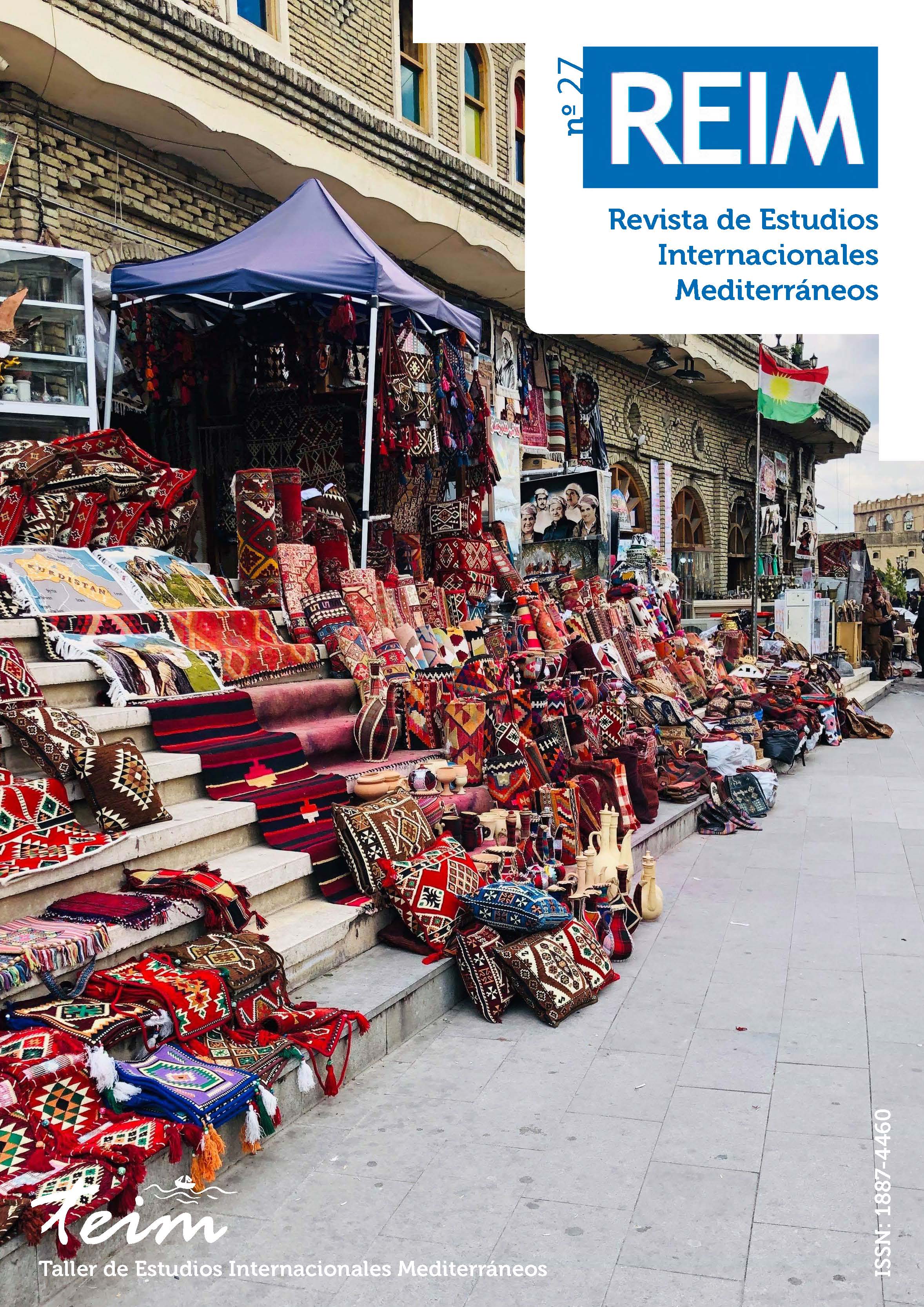The World Order and the Kurdish Question: a historical footprint from the Treaty of Sèvres to the Pax Americana
Keywords:
kurdos, orden mundial, nacionalismo kurdo, orden regional y Medio Oriente.Abstract
This paper synthesizes the most relevant international events from the emergence of Kurdish nationalism in the 19th century to the consolidation of the Autonomous Region of Rojava in 2014. The first section highlights the international context in which the Ottoman Empire leaves its organization traditional government in favor of the implementation of liberal reforms coming from the world order. In the second part, the emergence of a new world order at the end of the First World War is analyzed as well as how the dream of an independent Kurdistan was eroded. The third part, discusses the way in which the Kurdish population was distributed in different states of the Middle East and finally, it is observed how the American hegemony in the Middle East was not favorable to the Kurds until the invasion of Iraq in 2003 , explaining the Kurdish prominence in the 21st century.
Downloads
References
ALBANI, Leandro. (2015): "Mahabad: cuando el pueblo kurdo fue república", rsumen Medio Oriente, 20 de noviembre de 2015, disponoble en
http://www.resumenmediooriente.org/2015/11/20/mahabad-cuando-el-pueblo-kurdo-fue-republica/ [consulta: 3 de septiembre de 2019].
ANDERSON, M.S. (1966): The Eastern Question: 1774-1923, A Study in International Relations, London, Macmillan. https://doi.org/10.1007/978-1-349-15226-1
BROWN, Carl (ed.). (2001): Diplomacy in the Middle East, The International Relations of Regional and outside Powers, London, I.B. Taurus Publihers.
BROWN, E.M. (1993): "Causes and Implications of Ethnic Conflict", en BROWN, E.M. (ed.), Ethnic Conflict and International Security, New Jersey, Princeton University Press, pp.3-26. https://doi.org/10.2307/j.ctv36zq9w.5
CASTILLO, Juan Carlos, (2018), "Los kurdos en el escenario geopolítico del Medio Oriente pos-2010: fronteras, nacionalismo y estado-nación", en GARDUÑO, Moisés (et al), Temas contemporáneos de Medio Oriente: Ensayos en honor a Luis Mesa Delmonte, México, El Colegio de México/UNAM, pp. 129-139.
CLEVELAND, William. (2000): A History of he Modern Middle East, 2nd ed., Colorado, Westview Press, Boulder.
COX, Robert. (1987): Production, Power, and World Order: Social Forces in the Making of History, New York, Columbia University Press.
DAVIDSON, Roderik, (1963): Reform in the Otoman Empire, 1856-1876, New Jersey, Princeton University Press.
EPPEL, M. (2008): "The Demise of the Kurdish Emirates: The Impact of Otoman Reforms and International Relations on Hurdistan during the First Half of the nineteenth Century", Middle Eastern Studies, 44:2, pp. 237-258. https://doi.org/10.1080/00263200701874883
GARDUÑO, Moisés. (2016): Dinámicas de poder y prácticas de resistencia en las revoluciones árabes, México, Centro de Investigaciones y Estudios en Antropología Social (CIESAS) / Casa Chata.
HALLIDAY, Fred. (2005): The Middle East in International Relations: Power, Politics and Ideology, New York, Cambridge University Press. https://doi.org/10.1017/CBO9780511790829
HANIOGLU, Sûkûru. (2008): A Brief History of the Late Otoman Empire, Princeton/Oxford, Princeton University Press. https://doi.org/10.1515/9781400829682
Hurewitz, J. C. (1956): Diplomacy in the Near and Middle East. A documentary record, 1535-1914 (1914-1956), Princeton, D. Van Nostrand Co.
ISLA, Jaime, (1976): "Los primeros intentos modernizadores en el Imperio Otomano", Relaciones Internacionales, núm. 13, vol. IV, abril-junio, México, UNAM, pp. 51-5.
-------------, (2018a), La injerencia histórica del orden mundial en el Medio Oriente, México, UNAM/SITESA.
-------------, (2018b) "El Medio Oriente y el orden mundial a cien años de los acuerdos Sykes-Picot", en BALLESTEROS, Carlos (coord.), Regiones internacionales. Una perspectiva transversal, México, UNAM.
LEYSENS, Anthony. (2008): The Critical Theory of Robert W. Cox: Fugitive or Guru?, New https://doi.org/10.1057/9780230584457
York, Palgrave Macmillan.
MCDOWALL, D. (2004): A Modern History of the Kurds, 3ª ed., Nueva York, I.B. Tauris,
MOJAL, Xavier: "La cuestión kurda en Turquía: Un conflicto interminable. Parte I: orígenes del conflicto y evolución hasta el nacimiento del PKK, MENA Analisis, 2019, disponible en http://www.menanalisis.com/la-cuestion-kurda-en-turquia/ [consulta: 18 de agosto de 2019].
NATALI, D. (2005): The Kurds and the State, Syracuse, Nueva York, Syracuse University Press.
SIERRA, María de Lourdes. (2002): Introducción al estudio del Medio Oriente. Del surgimiento del Islam a la repartición imperialista de la zona, México, Facultad de Ciencias Políticas y Sociales, Universidad Nacional Autónoma de México.
-------------, (2007), La influencia del factor externo en la configuración del Medio OrienteModerno y sobre sus relaciones internacionales, México, Facultad de Ciencias Políticas, UNAM.
